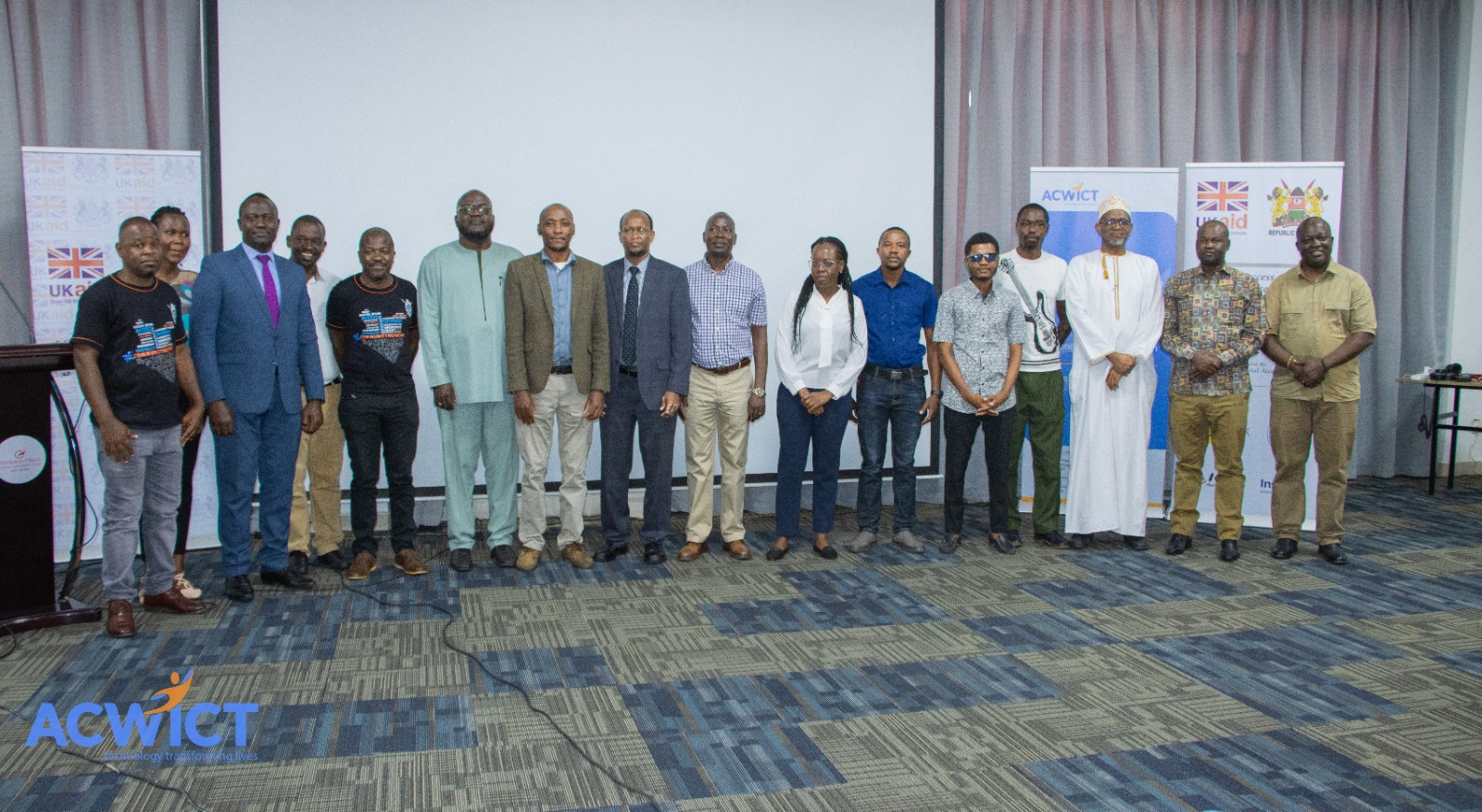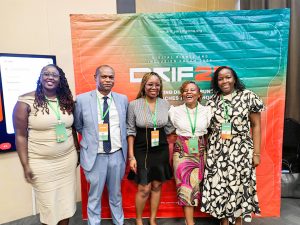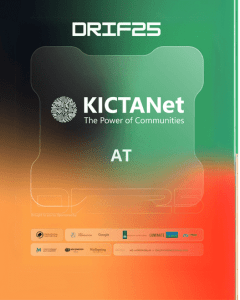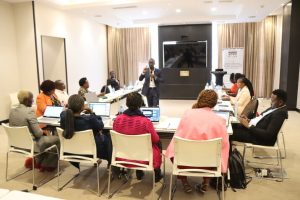Kenya does it again!! The Community Networks movement in Kenya is happy to lead the way in the first-ever in Africa, Association for Community Networks. The association is a membership-based network that unites community networks in Kenya, amplifies their voices, and prioritizes their needs in policy dialogues, fostering a favourable environment for their development.
The Association for Community Networks in Kenya (ACNKe) is made up of members from 13 community networks in Kenya, representing 8 counties.
They include AngazaNet (Nairobi), AheriNet (Kisumu), Alinet (Laikipia), Athi Community Network (Meru), Dunia Moja (Kilifi), Lanet Umoja (Nakuru), Tanda (Nairobi), Oasis Mathare (Nairobi), Action Pour Le Progres (Turkana), Kijiji Yeetu (Siaya), Ngikeyokok (Turkana), Siaya Community Library (Siaya) and GIV (Turkana).
The minimum requirement to retain membership in the association is:
- To have a community networks license
- To have Infrastructure, at least one node
So far, 11 community networks have applied for the Community Networks Service Provider License.
The movement has been strengthened since 2021 through the Kenya National School of Community Networks, a capacity-building program through the Local Networks initiative by the Association of Progressive Communications (APC ) in partnership with Rhizomatica.
Through the school, community networks in Kenya grew from 7 in the first phase to 11 in the second phase and now 13. The community networks have organized themselves into communities of practice (sustainability, local content creation and network infrastructure).
Since the inception of the LocNet initiative in 2016, there has been rapid awareness and an increase in the number of community networks in Africa through movement-building efforts driven through the community networks, in an effort to increase awareness and understanding of these models and to facilitate information sharing.
In Africa, movement building has taken the form of capacity-building forums, dialogues, training and learning exchanges with community-based initiatives, policymakers, academia, and digital rights enthusiasts. In Kenya, these efforts have led up to 13 community networks from 3, the formation of an association, recognition through a licensing framework for community networks and the cherry on the cake, a seat on the table in shaping Kenya’s digital agenda.
Digital Access Partners Meeting
On 22nd May 2023, UK AID through its Digital Access Program hosted a 4-day partners workshop at Pride Inn Hotel, Machakos County. The 4-day workshop brought together The African Centre For Women, Information and Communications Technology (ACWIT), the Association of the Physically Disabled of Kenya (APDK), the Association of Internet Service Providers of Kenya, the Association of Community Networks of Kenya (ACNKe) amongst other partners in the government including Communications Authority of Kenya (CA) and ICT Authority (ICTA).
The workshop focused on two UK DAP-funded projects: Digital Services in Agriculture and Digital Accessibility to government services for Persons with Disabilities (PWD) projects.
Within KICTANet’s program of ICT Accessibility and Equality of Persons with Disability, its fellows were part of a team that conducted research on ‘Accessibility of the government of Kenya websites for persons with disability’.
They came up with a scorecard and a policy brief (https://lnkd.in/dFnhYGBN) which they presented during the DAP partners meeting. ICTA proposes to have 25% of the government’s websites accessible by July 2024.
Since 2018, the Digital Access Program has been supporting affordable, inclusive, safe, and secure digital access for the excluded populations in Kenya as part of a global program targeting five countries (Kenya, Nigeria, South Africa, Brazil, and Indonesia). The National School of Community Networks is part of this program and has been implemented in all five countries.
Towards the Digital Super Highway
The community networks movement in Kenya has come far, finally gaining recognition in 2021 through the implementation of the Community Networks Service Provider License and again during the DAP partners meeting where the Director of ICTA and USF officials recognized the crucial part that community networks play in their efforts to connect underserved communities in Kenya.
The government stated its intention to collaborate with community networks and other present stakeholders in helping shape the country’s digital agenda, specifically in rolling out the 25,000 hotspots and 1,450 village digital hubs as part of the “Digital Super Highway”. ICTA proposes to have a public WiFi framework by December 2024.
Viscar Industrial Capacity Limited, a private consultancy firm was contracted to provide Technical Assistance for the Universal Service Fund strategic plan in supporting the government’s Transformational Digital Agenda (GoTDA). The overall objective of the technical assistance is to enhance CA’s capacity to implement the 2023/4-2027/8 USF Strategic Plan while mainstreaming DAP’s contribution through their partners in the implementation.
The USF strategic plan 2023-2027 can be summarized into 3 strategic goals:
Infrastructure and services
- Promote the development of communication infrastructure and services in rural unserved and under-served areas
- Support access to communications services by Persons with Disability (PwD), youth, and other vulnerable groups
Total Project Costs – KShs. 24.78Bn
Digital skills and content
- Build digital skills among the youth, women, and other vulnerable groups
- Support the development and access to relevant local content and technological innovation for the youth, women, and vulnerable groups
Total Project Costs – KShs. 6.54 Bn
Institutional capacity
- Attain institutional excellence in the management and administration of the Fund.
- Provide appropriate tools and systems for the management and administration of the Fund
Total Project Costs – KShs. 302M
The government is digitizing 80% of its services and will require partnerships at the grassroots to build the capacity of these e-services and train the communities on digital skills to navigate these government platforms.
Community networks are community-owned, community operated and have a deep understanding of the ecosystem in which they operate. They are specially placed in shaping the Government’s Transformational Digital Agenda (GoTDA) through the implementation of the “Digital Super Highway” in all the three above-mentioned strategic goals.
This is a series of blogs about Spectrum in a series of our publications on Community Networks.
__________________________________________________________
Ms Catherine Kyalo is the KICTANet Africa Regional Coordinator for Community Networks under the APC-LOCNET initiative. She is passionate about community welfare and enjoys yoga to rejuvenate. LinkedIn | Twitter
Photo courtesy of ACWIT
![]()




